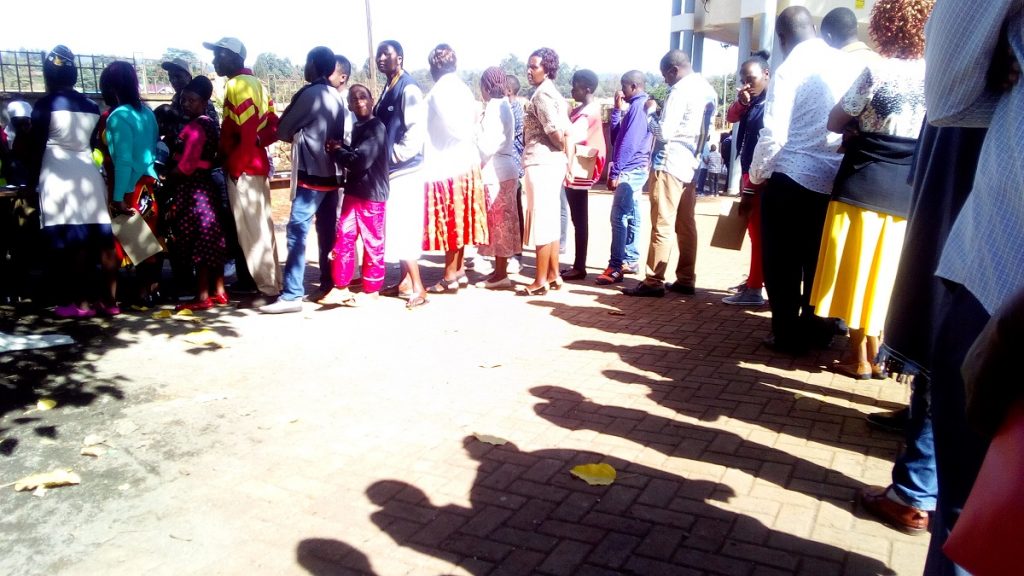Things you do not know about Huduma Namba

It is mandatory for all Kenyans to register and receive unified special identifier codes called Huduma Namba in Swahili. This is in accordance to the Amendment of Registration of Persons Act Section 9A. Other applicable laws which support the collection of biodata are: Registration of Births and Deaths Act, Kenya Citizens and Foreign Nationals Registration Act, Access to Information Act, Computer Misuses and Cyber Crimes Act, Kenya Information Communications Act among other laws. Government officials have stated from time to time that any person (s) who fail to register for the Huduma Namba will not be able to receive public services.
A number of questions have been ringing in my mind about Huduma Namba. What is this Huduma Namba? In this article we explore the meaning of Huduma namba, how it will be used, its advantages, disadvantages and other best practices from around the globe.
Where can I get more information about Huduma Namba?
You can learn a lot about Huduma Namba by clicking on this government website. According to the website’s Frequently Asked Questions (FAQ), Huduma Namba is crucial in harmonization and standardization of all data collected by various government agencies. Further, this will support government planning, enhance service delivery and promote efficient use of public resources. The state also believes that Huduma Namba will also play a central role in fighting crime and enhancing national security.
Who should register for Huduma Namba?
All Kenyan citizens and foreign national are expected to register for huduma namba. According to the state-owned website, this is the first time in the history of Kenya to have citizens’ biometric data captured in electronic format. In the past biometric data was captured on hard copies.
Will my cards be invalid afterward acquiring the Huduma namba?
No. You will continue using you national Identification cards, driving licenses and passports even after registering and obtaining the Huduma namba.
How much will it cost to roll out the Huduma Namba exercise?
According to official information from Huduma Namba website, the exercise is expected to cost Ksh. 7.7 billion. Most of this money will be used to pay personnel who are collecting the biodata and other required details. The government has stated categorically it has employed 5 people in each of the 8,500 sub-locations across Kenya to collect biometric data.
Is DNA data collected as part of Huduma Namba?
No. DNA data is not collected in order to register for Huduma Namba.
What are critics saying about Huduma namba?
- Critics have questioned the wisdom of having in place two parallel registration systems;
- Why is the state duplicating data or information which is already in its disposal?
- “There is no such thing as government services. They are public services and constitutional entitlements with or without Huduma Namba. We pay you to provide them,” Economist Dr. David Ndii;
- Data security is another source of concern. How will the data be stored and accessed to ensure personal data is not misused?
- Many stateless residents such as the Nubians will once more be re-marginalized because current data shows that 13% percent of the Nubians adults do not have IDs and hence they will not be able to complete the registration process.
- The Kenya Human Rights Commission (KHRC) and the Nubian Rights Forum challenged the roll-out of Huduma Namba in Kenyan courts based on the above concerns;
- Some rebel critics have related the Huduma Namba to Revelation 13:18 which talks about the mark of the beast. Currently, there is no way of proving whether this is true or false.
Practice in other countries
In China it is not possible to subscribe to the internet service unless one’s unique identification number is provided, (Wong and Cheng, 2015: p. 122).
“Falsification and alteration of identity cards are widespread phenomena, to which public security organs have reacted by introducing more refined anti-falsification technologies…the countless cases of falsification adjudicated by Chinese courts prove how individuals attempt to hide themselves from the gaze of the state.” (Wong and Cheng, 2015: p.124);
Western companies such as IBM and international agencies, such as the United Nations, funded the purchase of the first electronic computers used by population planners (Zhou, 1987: p.127);
References
Wong and Cheng (2015). Global China: Internal and External Reaches. World Scientific Publishing Company. London.
Read More: Fiona Onasanya becomes first MP recalled from House of commons UK

